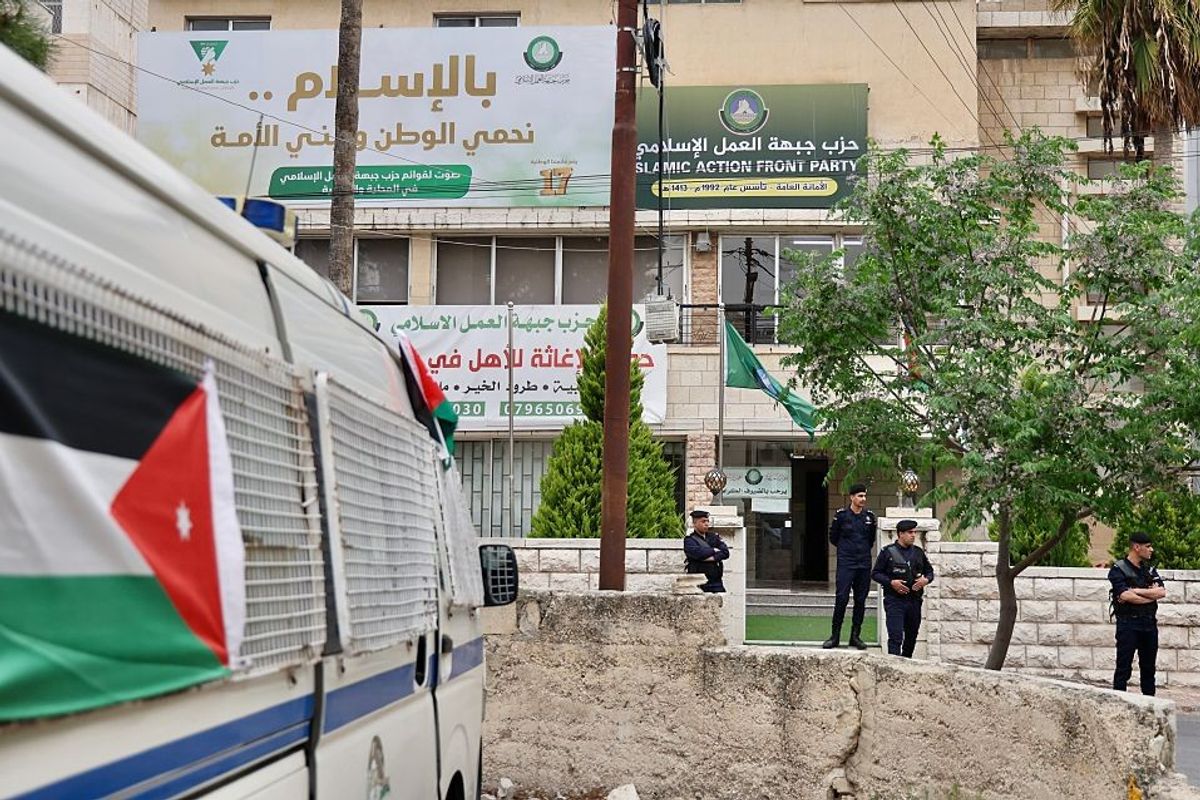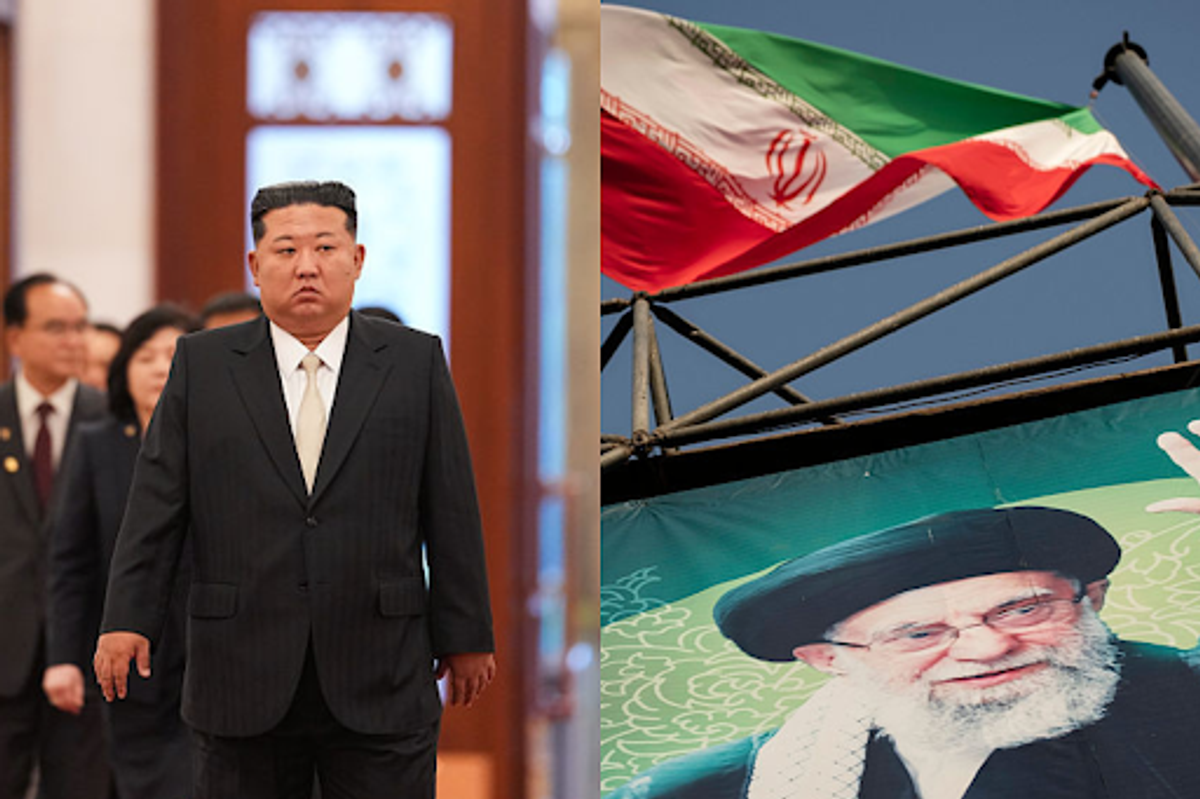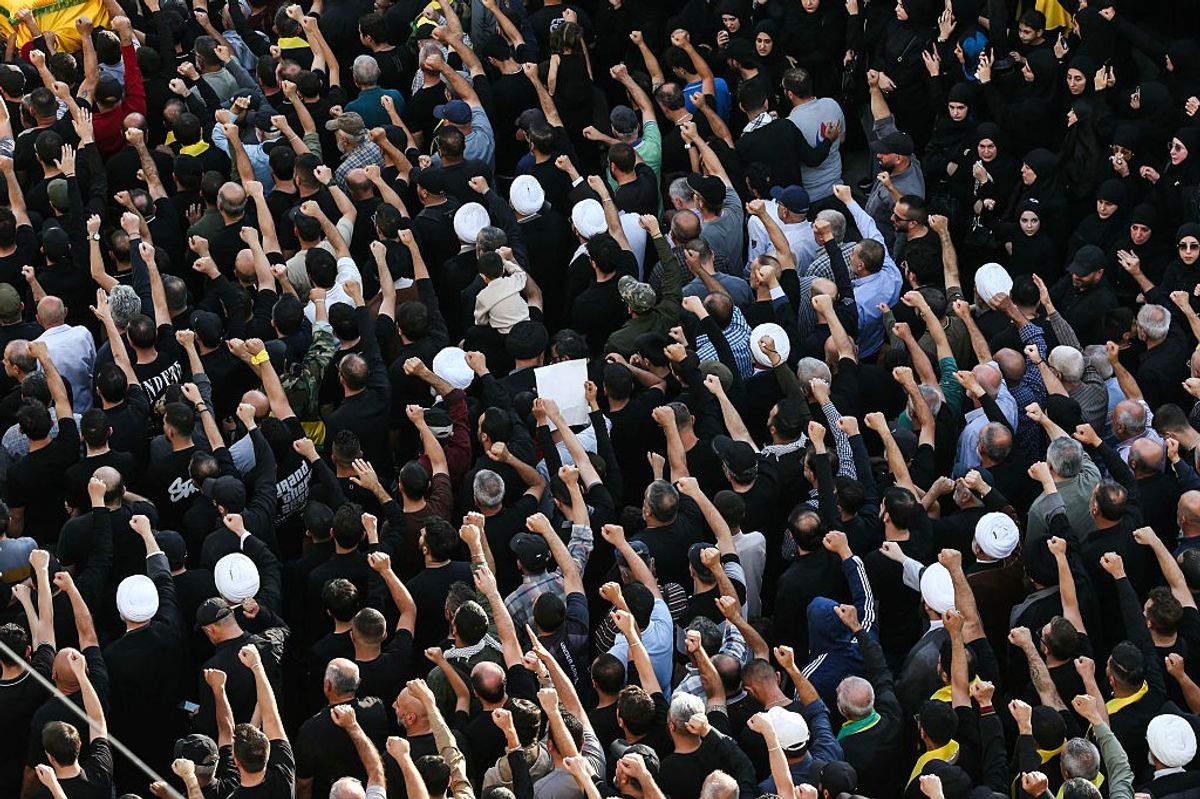EXCLUSIVE INTERVIEW — On the day after Iran’s missile strikes against Israel, and as Israel’s war cabinet considered a retaliation that Prime Minister Benjamin Netanyahu and the Israeli Defense forces have promised will be substantial, The Cipher Brief spoke with former Secretary of Defense Mark Esper about what has rapidly escalated into one of the most dangerous moments in the recent history of the Middle East.
Esper spoke with Cipher Brief Managing Editor Suzanne Kelly as part of our special coverage of the situation in the Middle East - which now includes the nearly year-long Israeli campaign against Hamas in Gaza, the more recent aerial and ground operations against Hezbollah in Lebanon, and now the potential of an Israeli war with Iran.
Watch the full conversation on The Cipher Brief’s YouTube channel.
This conversation has been edited for length and clarity.
Kelly: What's top of mind for you as you're watching these events in the region and the headlines coming in literally almost minute by minute?
Esper: It’s obviously a very dangerous world. What happened last night with the Iranian ballistic missile attack was a significant but feckless attempt to strike back at Israel, and I think we're all waiting now to see how Israel responds. That will dictate the course of events here in the coming days and weeks. And that's just one front. We have the Hezbollah front where Israel appears to be on the cusp of an invasion, at least a limited one. And then of course they are still confronting Hamas in Gaza at the same time.
Kelly: How closely are Israel and the U.S. collaborating or at least talking about organizing, communicating about what a response could look like by Israel? Because so far it looks like the U.S. has been told after the fact on several occasions as Israel has decided to take action.
Esper: I can't speak to the relationship right now between, for example, Lloyd Austin and his counterpart. But I will tell you during my tenure, it was very close, certainly at the mil-to-mil level. There's a lot of exchange of personnel and views and constant communication at multiple levels of command. And at the civilian level, there was too. My counterpart was Benny Gantz, and Benny and I talked quite often. So I can't speak to what's happening right now. But I can tell you that it's always been a strong foundation between our countries. It's based on shared values, shared interests, and a long-term relationship between our peoples.
Kelly: What would you guess right now would be a likely Israeli response to this attack?
Esper: I suppose they're going to go after different sets of targets. One, of course, might be the strategic aim of knocking out [Iran’s] nuclear sites or nuclear facilities. Another might be going after air defense systems or ballistic missile production sites. Or they could go after economic targets, such as their oil refineries and other facilities they have in the region that provides them the means, the money to continue to supply their proxy networks.
Kelly: In terms of launching any kind of attack on nuclear facilities there, would this be a temporary setback in terms of the development of Iran's nuclear program? Or do you think there's an opportunity here to have a more lasting impact on that program?
Esper: In situations like this, it's usually just temporary. If a country is determined to pursue a certain technology, if you can set them back by destroying facilities or taking out the people behind it, it's just a matter of time before they build new facilities, acquire new technology, train new scientists. So at the end of the day, it's really just a setback. The question is, can you set it back long enough for you to pursue other avenues of rolling back their program, whether it's diplomatic, economic, or military?
Kelly: How are you looking at the opportunity for Israel to really make progress on the Iranian proxy groups? We've already seen what Israel has done to Hamas since October 7th of last year. We've seen what they've been able to do to Lebanese Hezbollah just over the past several weeks. How much of a lasting impact do you think those actions are going to have on these groups' ability to continue to launch attacks against Israel?
Esper: In Gaza, Israel has knocked out 22 of 24 battalions, they've taken out many of the leaders, but not the most important one, Yahya Sinwar. And so I think the question is, what's the future going forward? I'm a believer in a two-state solution. But certainly you cannot have Hamas at any point going back in and governing, policing, providing public services to the people of Gaza. So you've got to make sure that Hamas doesn't reemerge, and that if anything, at most, it's an insurgency.
On Hezbollah, kind of the same situation applies, although you have a nation state (in Lebanon) which has been infected like a cancer by Hezbollah. And so the question will be at the end of the day, can you get a return to the UN Resolution 1701 agreement that was supposed to push Hezbollah way off the border to the north up along the Litani River? Of course, at the end of the fighting in 2006, Israel lived up to its obligations, moved south, and Hezbollah never lived up to its side. So it stood on the border, and that's why over the past 11 months they've been able to successfully attack Israeli villages communities right along the border.
And so the one option is to push them back north, take out their long-range weapon systems. Their leadership has already been decimated. And maybe you can finally get an agreement with UN peacekeepers and others to make sure that the border is maintained safe and free of Hezbollah.
Kelly: I think everyone's really waiting with bated breath to see what happens next, so escalation is the real issue for the next several days. What might Iran do if its nuclear sites were in fact targeted by Israel?
Esper: The question Iran has to ask itself is if they attack again, what will Israel do? And we know that Iran does not want a full-fledged war with Israel, let alone Israel and the United States. So I think Iran here is on really tricky ground, really uncertain ground. They no longer have a viable proxy in Hamas. Their proxy, their favorite one, the crown jewel in their ring of fire, Hezbollah, has been decimated. The leadership is gone. They're on their back heels. And those are the two punches that they really packed. The third one, maybe the most important ones for Iran, were ballistic missiles. And those have been proven to be ineffective. So the question is, what is left for Iran to do? What punches can it throw back at Israel and the United States and other allies in the region?
Kelly: What are your thoughts about the new alliance that's been growing over the last couple of years now between China, Russia, and Iran? Is that at all playing on your mind in terms of what's happening next? Are we wrong to focus only on the Middle East and not see those other connections?
Esper: We should not focus only on the Middle East. The partnership, as I call it, is not just with China, Russia and Iran — it's North Korea as well. And so what you see is this increased trade, the sharing information, the parallel collaboration between them. You have North Korea providing rockets, missiles, and 155-millimeter ammunition to Russia. Russia in exchange is providing technology back to North Korea. We see the same trade going on between Russia and Iran — Iran provides Russia with drones and ballistic missiles to shoot into Ukraine, and in exchange Russia is selling air defense systems, maybe jet fighters, which would be a major step up, and space technology. And so this trade has to be discontinued.
China, for example, is providing dual-use items to Russia. In exchange, we fear that maybe Russia's providing advanced submarine technology. So you see this bloc of countries, the autocracies of the world, coming together, working as a bloc, certainly trading - currency flows, and oil flows once Europe cut off the Nord Stream (pipeline) and Russia was forced to sell its gas elsewhere. Where are they selling it? They're selling it to China. So that's what you see happening out there and it's certainly a problem that we have to deal with.
Kelly: What are you going to be looking for next in terms of what's happening in the region and any potential escalation that might be a wild card?
Esper: I think it'll be Israel's response, number one. Number two will be what does Israel do with regard to Lebanon? Do they go in? I expect they will. But the question is, how do they go in? How long? What will happen? We still have Hamas out there and the hostages that are still being kept by Hamas. So we can't forget about them. I think the wild card out there is this: the people of Lebanon have been held hostage by Hezbollah now since 1982, at least. And the question is will, at some point in time, a window open for the people of Lebanon — the non-Hezbollah Shias, Christians, Sunnis, et cetera — to be willing to come together and push Hezbollah out? Or at least suppress them as the political player they are within that country? The people of Lebanon deserve far better than what Hezbollah has been bringing on them for nearly 20 years, since 2006. That would be my hope as a wild card.
Who’s reading this? More than 500K of the most influential national security experts in the world. Need full access to what the Experts are reading?
Read more expert-driven national security insights, perspective and analysis in The Cipher Brief because National Security is Everyone’s Business.














